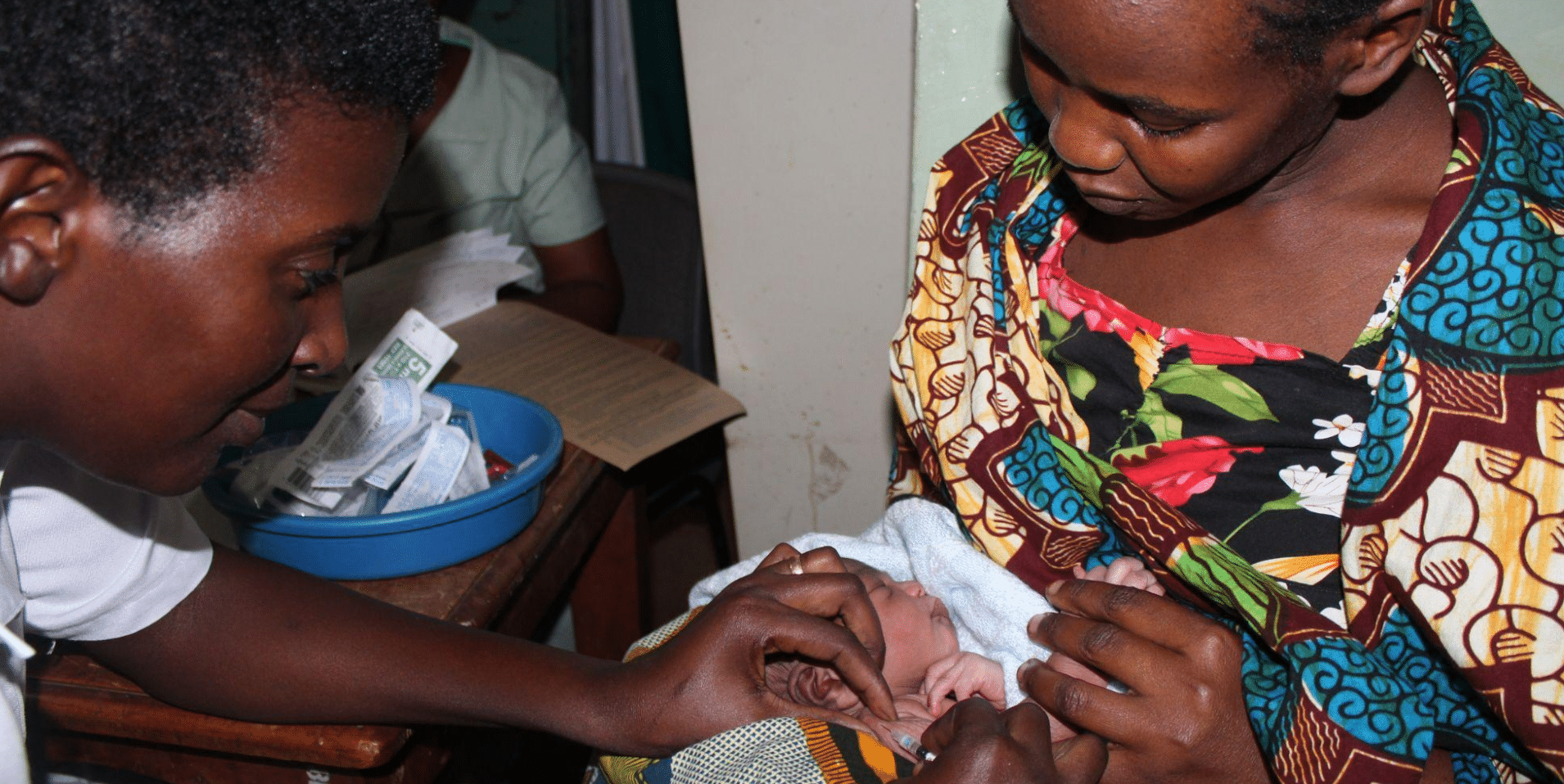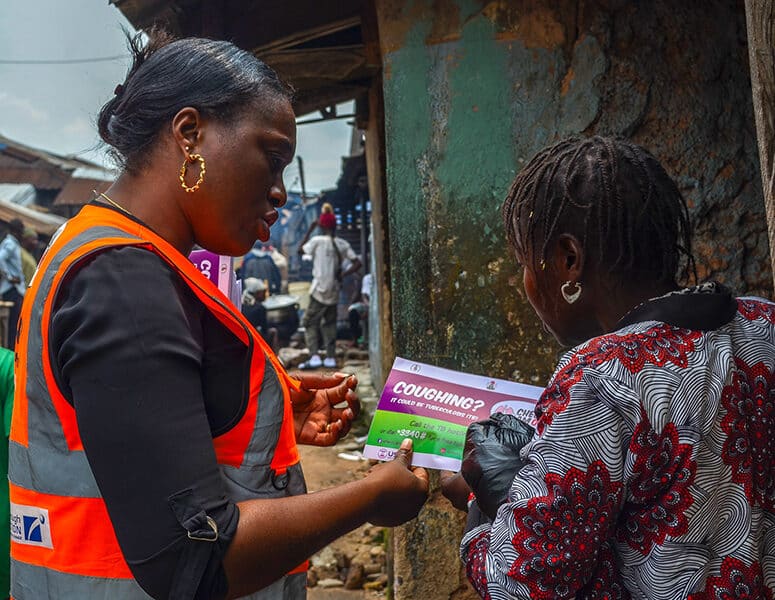It happens in health facilities in Tanzania and in all corners of the world: Care providers report being barraged with demands and facing burnout, while many women are met with disrespect and even abuse when seeking vital care.
Seeing a critical need for improved post-partum care, the Johns Hopkins Center for Communication Programs-led Breakthrough ACTION project developed and is evaluating an intervention in three private faith-based Tanzanian health facilities by leading with compassion. The compassion-based approach focuses on repairing workplace culture and strengthening service quality through kindness and self-care.
The work is at the nexus of social and behavior change and health systems strengthening, where the goal is to bring a more human-centered approach to health care, where providers and clients alike can feel better about their experiences. Research has shown that when clients are treated with compassion, they have better clinical health outcomes. In turn, providers report greater job satisfaction and self-esteem.
“We need to create psychological safety in the workplace, so that people are not fearful of making mistakes,” says CCP’s Lynn Van Lith, the technical director of Breakthrough ACTION. “What often happens is that supervisors give feedback when it is negative, you made a mistake, you know, this is a problem, but rarely is positive feedback given.”
Among other elements, the intervention seeks to improve provider job satisfaction, making sure that providers feel supported and are treated with compassion themselves in their health facilities, she says. This way, they are better equipped to provide respectful maternity care.
One piece is simply coaching supervisors to check in on providers to see how they are doing. “We want to try to open up conversation, build trust, and try to encourage people to do small things to show that they see each other,” Van Lith says. “Providers are so overwhelmed and so burnt out, dealing with long queues of clients or product stockouts. How can they in small ways demonstrate care towards one another?”
Breakthrough ACTION has already conducted a pre-test of the intervention, built on the World Health Organization’s work in this area, and believes the intervention, which began in May, has promise. The six-month pilot program is being conducted in Tanzania in partnership with another USAID-sponsored project, Community Partnership for Respectful Care (CPRC) and the Tanzania Ministry of Health who are both co-investigators on the study.
“There’s plenty of evidence around client disrespect and abuse, contributing to poor quality of care and negative care experiences,” says CCP’s Beth Mallalieu, a senior program officer who is involved in this work. “This intervention aims to turn that on its head and emphasize not just clinical guidelines, which every provider must follow, but to bring this human element into respectful maternity care, and really emphasize the role that compassion can play.”
Another element of the compassion-based intervention focuses on clients and their satisfaction with the care they receive. This includes posting clients’ health care rights in prominent places in the facility, reminders that clients are entitled to dignity and respect, safety, privacy and more, including “the right to complain.” It also includes simple client feedback tools that can be dropped in a box, the awarding of a “compassionate champion of the month” to the providers who earn high satisfaction scores and a chance for providers to self-evaluate and provide feedback to the facility.
There is also a component of simple self-care for providers, teaching breathing techniques or how to step away to keep calm if need be.
Van Lith says that if this intervention proves successful in improving maternal and child health care during an extended postpartum period, the Tanzanian government may consider using the program in public-sector health facilities. These interventions, she says, may help providers tap into the reasons they got into health care in the first place.
“Providers have a sense of dignity and care,” she says. “That is why most providers get into the work in the beginning, to treat people. And so, when they get that positive feedback from a client or their peers, it is rewarding. We hope this intervention can demonstrate that when providers are acknowledged for their hard work and clients feel seen and respected, not only do both parties feel better, providers perform their jobs better and health outcomes improve.”





